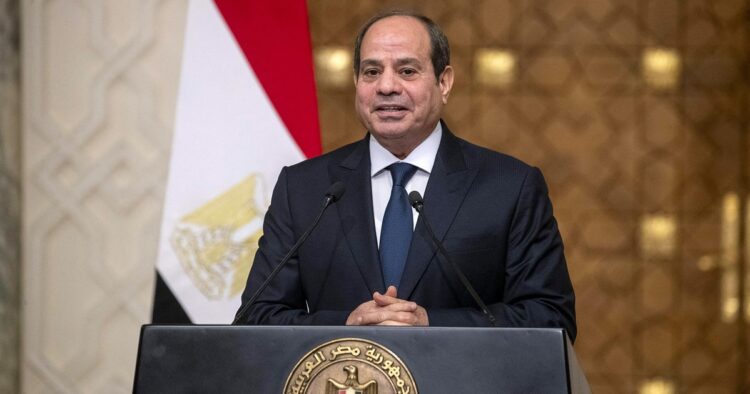Abdel Fattah El-Sisi has been re-elected as Egypt’s president for a third term, securing a staggering 89.6% of votes in an election held from December 10 to December 12. Notably, there were no significant contenders challenging him. This victory comes amid Egypt grappling with economic challenges and concerns about the impact of the Gaza conflict on its Sinai Peninsula.
The election saw a turnout of 66.8%, higher than the 41% recorded in the 2018 presidential election. Some voters cited the conflict in Gaza as a factor influencing their support for Sisi, who positioned himself as a stabilizing force in a volatile region, gaining support from Gulf and Western allies.
Critics argue that the election lacked genuine competition, as potential challengers faced obstacles and one prominent candidate withdrew, claiming harassment of his supporters. The head of an independent group, Hossam Bahgat, accused Sisi of using state apparatus to suppress serious contenders and asserted that the election was more symbolic than democratic.
Sisi, a former general, has faced criticism for cracking down on dissent since overthrowing Egypt’s first democratically elected leader in 2013. The constitution was amended in 2019, extending the presidential term to six years and enabling Sisi to run for a third term.
Supporters commend Sisi for initiatives like infrastructure development, including a new capital. However, others view these projects skeptically, considering them costly extravagances amid rising debt and soaring prices.
Sisi’s administration emphasizes security, claiming benefits for various groups under his rule. Some supporters, like Nourhan El-Abbassy, express a desire for more female representation in key positions and revisions to personal rights laws.
Despite efforts to address human rights concerns through a national dialogue and releasing prisoners, critics dismiss these actions as cosmetic. Many Egyptians expressed indifference toward the election, with reports of people being bussed to polling stations and incentives, like basic commodities, offered to voters, raising questions about the fairness of the electoral process.

















Comments